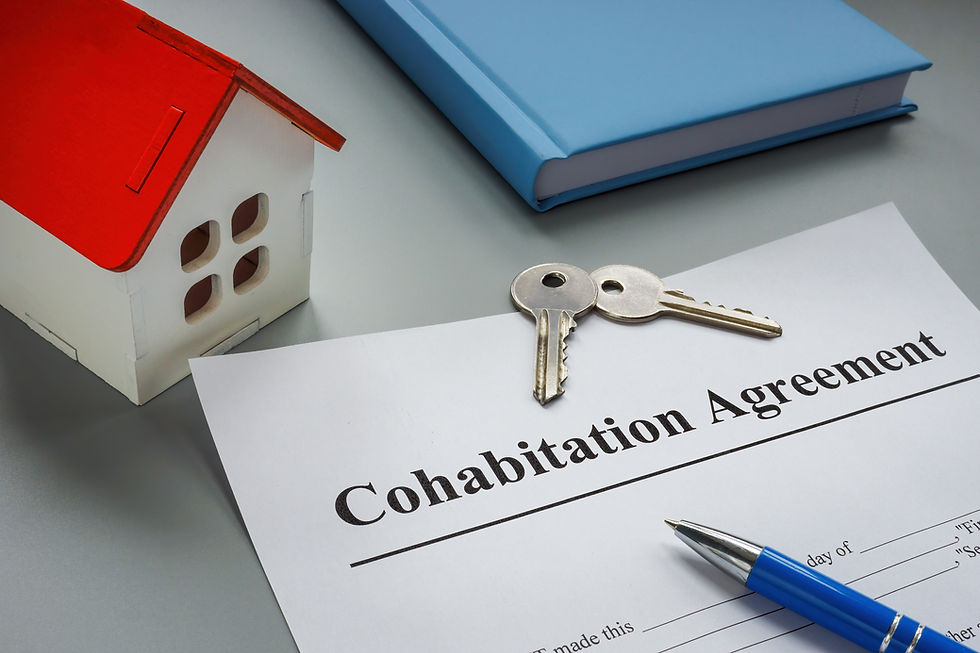Trusts explained
- Nov 25, 2021
- 4 min read
A trust is a legal arrangement whereby control over property is transferred to a person or organisation (the trustee) for the benefit of someone else (the beneficiary). You can register two types of trusts, namely the inter-vivos trust and the testamentary trust. The inter-vivos trust is created between living persons, whereas the testamentary trust is derived from the valid will of a deceased person.
It can also be said to be an agreement initiated by the Owner of a certain asset or assets, whereby the Owner (who could be called the Founder) appoints certain other people to look after the asset or assets – which the owner now places into the care of the Trust.
The Trust Property Control Act No. 57 of 1988 (TPCA) forms the framework in which trusts operate. All decisions and actions taken by the trustees must be made with reference to the trust deed and the TPCA. Trust property may be movable, immovable, including contingent interests in property, which are to be administered or disposed of by a trustee in terms of the deed.
Types of trusts recognized by South African law:
Inter Vivos (Living) Trust: This is a trust created during the founder’s lifetime. It is established by a trust deed which sets out who the founder, trustees and beneficiaries are, defines powers and duties of trustees and how and when the trust is to be wound up. The founder may also be co-beneficiary and /or trustee. The founder usually donates assets to the trust.
Testamentary (Mortis Causa) Trust: This type of trust is the most used form of trust in South Africa. Testamentary (will) trusts are created by a trust clause in a will, in which the testator bequeaths assets to the trust and stipulates the terms and conditions which will apply to the trust. A testamentary trust only comes into existence upon death of the testator. If for any reason the will is invalid, the trust will not come into effect.
Testamentary trusts are geared towards protecting the interests of minors and other dependents who cannot look after their own affairs. Assets that form part of an estate may be moved to the testamentary trust and sometimes include limited rights such as usufruct (temporary right to use/benefit from trust assets). The appointed trustees administer the trust in terms of the will until the trust terminates, usually after a predetermined period or at a determined event, such as a minor turning eighteen or the death of an income beneficiary.
Trusts are not cheap, so only income generating assets are suitable. They are also complex, and it is wise to obtain expert legal advice from an Attorney before embarking on such a project. We at Rudolf Buys and Associates Attorneys can help you with that.
Asset protection
One of the main advantages of a living trust is the protection of assets from creditors. Since assets held by the trust aren’t owned by the trustees or the beneficiaries, the creditors of the trustees or beneficiaries can have no claim against the trust (there are exceptions). Simply put, any assets that are in the trust are not considered as part of the estate in the case of insolvency. There are also certain tax benefits when dealing with the deceased estate.
Assets can be transferred into the living trust either by a loan or a cash donation. In terms of South African law, a donation to a trust that does not exceed R100 000 within the applicable tax period will be exempt from donations tax (and then levied at 20% once the limit has been exceeded for that tax year).
Tax considerations
There are certain tax considerations to be aware of. A trust will be liable for income tax and capital gains tax (CGT). SARS will require that the trust be registered for income tax as soon as it has been set up. The trust’s income can be taxed in the hands of either the trust or the beneficiary. It is often more beneficial for the income to be taxed at beneficiary level since a trust pays income tax on the highest individual bracket of 45% whereas individuals pay on a sliding scale usually less than that. As regards CGT, a trust will pay tax on the capital gains earned at the rate of 36%, whereas individuals only pay 18%. A trust set-up has certainly become less tax efficient over the years since SARS continuously introduces more stringent measures to clamp down on tax avoidance.
Why should you create a trust?
For estate planning purposes, there are several advantages in placing assets in a trust. Some of these include:
The growth on assets transferred to a trust is not subject to estate duty, because the growth belongs to the trust. If you have made use of a loan to the trust, the value of the assets as at the date of transfer remains an asset of your estate because of the loan account in your estate.
A trust does not die. This means that the trust is not liable for estate duty, other taxes, or costs, such as transfer duty, executor’s fees, or conveyancing fees, that would otherwise be payable in the hands of the estate or the heirs.
Assets/benefits in a trust continue to be paid to the beneficiaries after you die. Assets in the estate may not be freely available to your dependents because the estate is frozen during the winding up process. This means that dependents may only receive an income after your estate is finalized.
Protection of assets. A beneficiary cannot sell a right in a trust (unlike shares in a company for example). If a beneficiary becomes insolvent, the assets in the trust continue to be protected. Likewise, if you as the donor or trustee become insolvent, the trust’s assets remain protected.
Income from a trust can be structured in such a way to provide tax efficiency. For example, R100 000 earned by a trust can be split between five beneficiaries so that they earn R20 000 each. If they earn no other income, they will pay no tax as this amount is below the threshold. This is the split income principle i.e., income tax is levied against the trust, but income distributed is taxed in the hands of the beneficiary.
Creditor protection in the event of the trust beneficiary’s insolvency. As mentioned before, in the case of a living trust, the assets are not owned by the trustees or beneficiaries and the creditor therefore has no claim against them.
.png)



Comments